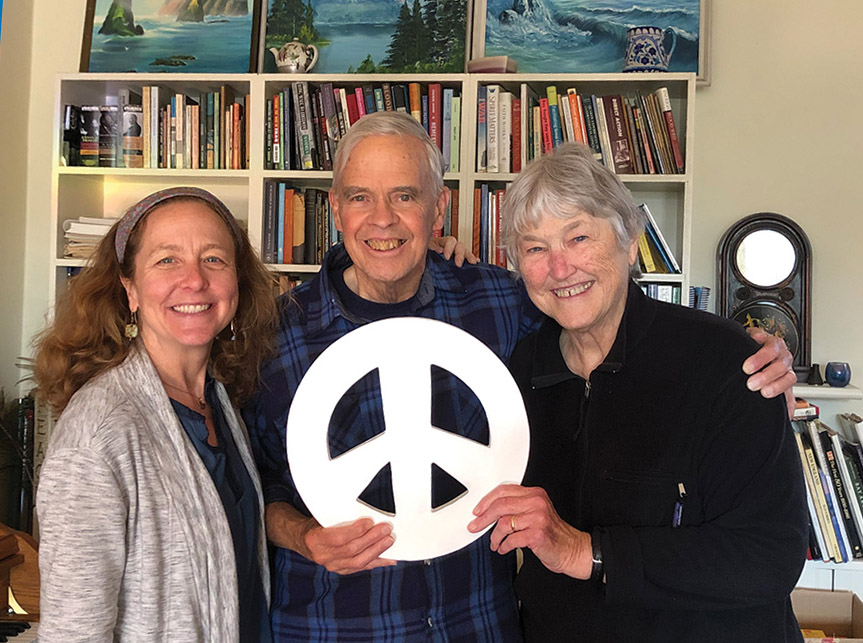David Hartsough, a former staff member of FCNL, is the author of the book Waging Peace: Global Adventures of a Lifelong Activist. This Q&A is excerpted from a 2022 interview for FCNL’s oral archives conducted by Kristen Archer.
What brought you to FCNL?
I went to an American Friends Service Committee seminar in Washington and one of the things we did was to visit FCNL. Frances Neely, who was on the staff, took a dollar bill and cut it into slices. About half of it was for the military and for wars, and then there were tiny little slices for education, healthcare, and Social Security. That stuck with me for years.
Tell us about your meeting with President John F. Kennedy.
Ed Snyder invited me to be a part of the delegation to meet President Kennedy in the White House in May 1962. We sat in a semi-circle at the Oval Office, with Pres. Kennedy on his rocking chair next to the fireplace. We encouraged him to take more leadership and move us away from the nuclear arms race.
We had heard that a nuclear submarine was going to be named the William Penn. We said we don’t believe in nuclear submarines, and William Penn would turn over in his grave. After 25 minutes, his secretary came in, told him his next appointment was there, and he said, “Tell them to wait. I’m learning something from these Quakers.”
How did you convince members of Congress to read the names of soldiers who died in Vietnam?
It wasn’t exactly my job with FCNL, but Quakers began coming to Washington on Wednesdays to read the names of the war dead on the Capitol steps. They would only get through 50, 60 names and they’d be arrested for demonstrating without a permit. I got arrested. After three weeks of Quakers getting arrested, I asked Congressman George Brown of Southern California for help.
He took a big puff out of a cigar and leaned back on his swivel chair, and he says, “Yeah,” he said, “I think I will join you. Furthermore, I’m going to write to every member of Congress telling them what I’m going to do and invite them to join us.”
So the next day we had three members of Congress on the Capitol steps who joined us reading the names of the war dead. And when the Quakers were all arrested, the congressmen continued reading 40,000 names of the Americans who had died. They had immunity, they could not be arrested.
What did FCNL and Quakers bring to the anti-war movement?
FCNL was really taking the lead and showing by example. It’s not enough just to educate the people back home about what was going on, we needed to go over and rub noses with these people that had the power to make some key life-and-death decisions about war and peace.
We convened a lot of meetings of church groups and other peace groups. We briefed all kinds of people coming to Washington. And people saw by example of what we’re doing at William Penn House (now Friends Place) with the regular educating members of Congress about what was going on.
What advice would you offer to people working for peace today?
FCNL must continue to go to the Hill—speaking truth to power and educating and encouraging members of Congress to do the right thing and take the leadership in ending these wars.
“Tell the truth because without the truth, how can a democracy work if people don’t have accurate information?”
The military and those that want to fight these wars have gotten smarter and keep things secret. Now it’s just pervasive how false information is getting out. I’ve gotten to know Daniel Ellsberg very well, who faced 150 years in prison for telling the truth about the Vietnam War. His advice to me is, “Tell the truth because without the truth, how can a democracy work if people don’t have accurate information?”
It was a great joy and a great privilege to work closely with both Raymond Wilson and Ed Snyder in the 1960s. I know that FCNL’s continuing to do very important work, so thank you.

